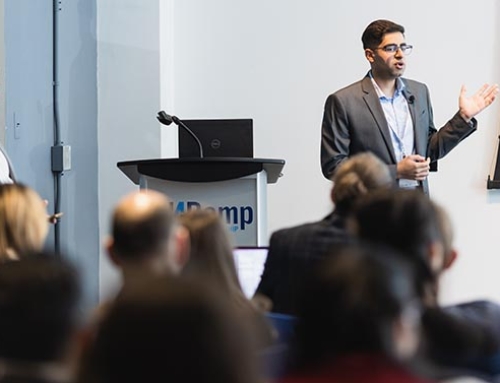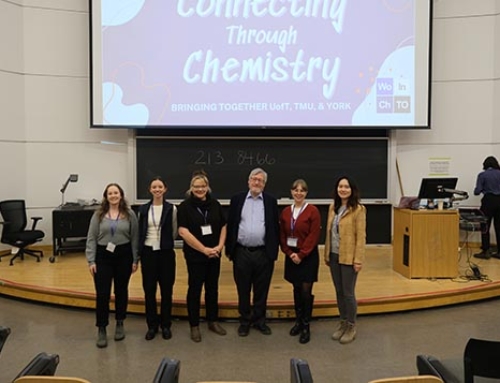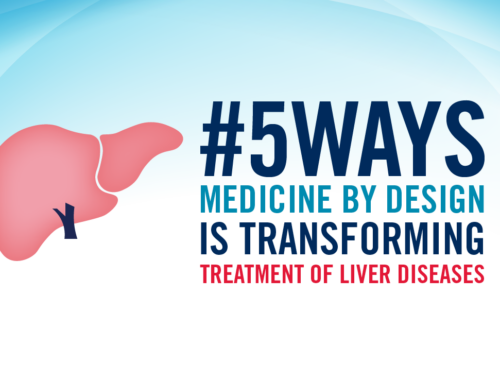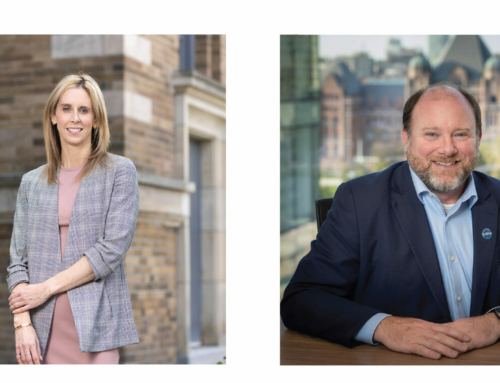
The plenary speakers at the 6th Annual Medicine by Design Symposium on Dec. 9 and 10. The symposium will also feature speakers from within the Medicine by Design community and a panel of health innovation experts.
In research, systems thinking focuses on the interactions among components within biological systems rather than looking at the components themselves as separate parts. And at the virtual Medicine by Design 6th Annual Symposium on Dec. 9 and 10, speakers and attendees will explore how this approach can advance regenerative medicine.
“As regenerative medicine’s tools become more and more sophisticated, we’re able to take a larger view,” says Michael Sefton, who is the executive director of Medicine by Design. “We’re asking questions like: How do complex biological systems work together? How do we integrate one biological system within a larger interconnected system? The Medicine by Design symposium will assemble a group of experts who can speak to these powerful concepts in biological and health research.”
A systems approach also drives the clinical and societal advances that originate from scientific research and feed the health innovation system. Day two of the symposium will be dedicated to a panel discussing how the bioinnovation ecosystem can better integrate ground-breaking advances in scientific research to have an impact on human health more quickly.
“We’re welcoming renowned experts in the health innovation space,” says Sefton, who is also University Professor in the Department of Chemical Engineering and Applied Chemistry and the Institute of Biomedical Engineering at the University of Toronto (U of T). “They will each contribute their expertise in a wide-ranging discussion that touches on healthy policy and economics, technological innovation and lessons learned from the COVID-19 pandemic.”
The symposium will feature talks by regenerative medicine experts and will place a special focus on research that demonstrates the role of systems thinking in advancing regenerative medicine and transforming human health. In addition to the panel, the symposium will feature two sessions titled, “Deciphering cell-to-cell communication,” and “Interconnected organs-on-chips.”
Medicine by Design will welcome the following slate of external speakers:
- Ruslan Medzhitov is a professor in the Yale School of Medicine at Yale University. His laboratory focuses on the biology of inflammation, mechanisms of tissue homoeostasis, allergic immunity and mechanisms of diseases.
- Linda G. Griffith is a professor in Department of Biological and Medical Engineering at the Massachusetts Institute of Technology (MIT). Griffith directs the Center for Gynepathology Research at MIT and leads a program called “Human Physiome on a Chip,” which combines ten microphysiological systems in an interacting circuit.
- David R. Walt is a professor at the Wyss Institute for Biologically Inspired Engineering at Harvard University who has founded or co-founded several life sciences startups, including Arbor Biotechnologies and Illumina, Inc., both multi-billion dollar biotech ventures. He is a pioneering researcher of medical diagnostics and co-leads the Mass General Brigham Center for COVID Innovation.
Walt will also be part of the panel titled, “Strengthening Our Bioinnovation Ecosystem,” along with the following speakers:
- Catherine Beaudry leads the Partnership for the Organization of Innovation and New Technologies (4POINTO) and is a professor at Polytechnique Montreal.
- Michael May is president & chief executive officer at Centre for the Commercialization of Regenerative Medicine (CCRM).
- Beate Sander is a scientist and the director of Population Health Economics Research, Toronto Health Economics and Technology Assessment Collaborative (THETA).
Several Medicine by Design-funded investigators doing research in areas related to the symposium’s theme will also speak:
- Sidhartha Goyal, Associate Professor, Department of Physics, U of T.
- Milica Radisic, Professor, Department of Chemical Engineering and Applied Chemistry and Institute of Biomedical Engineering, U of T.
- Miguel Ramalho-Santos, Senior Investigator, Lunenfeld-Tanenbaum Research Institute, Sinai Health.
- Amy Wong, Scientist, Program of Developmental & Stem Cell Biology, Hospital for Sick Children.
The symposium will also feature two talks and more than 35 poster presentations by trainees in Medicine by Design-funded labs.
“We always look forward to gathering as a community at our annual symposium to share our research successes and talk about what we plan to achieve in the future,” Sefton, whose lab is located at the Donnelly Centre for Cellular and Bimolecular Research, added. “We’ll be welcoming attendees not only from the Medicine by Design community at the U of T and its affiliated hospitals, but from all of Canada and beyond. We look forward to sparking discussions that can become the basis for new collaborations and opportunities.”
Please visit the symposium event page for more detailed information about Medicine by Design’s 6th Annual Symposium and how to register. Registration will close on Dec. 8.
About Medicine by Design
Medicine by Design builds on decades of made-in-Canada excellence in regenerative medicine dating back to the discovery of stem cells in the early 1960s by Toronto researchers James Till and Dr. Ernest McCulloch. Regenerative medicine uses stem cells to replace diseased tissues and organs, creating therapies in which cells are the biological product. It can also mean triggering stem cells that are already present in the human body to repair damaged tissues or to modulate immune responses. Increasingly, regenerative medicine researchers are using a stem cell lens to identify critical interactions or defects that prepare the ground for disease, paving the way for new approaches to preventing disease before it starts. Medicine by Design is made possible thanks in part to a $114-million grant from the Canada First Research Excellence Fund.






